



In the wake of the financial crisis in 2008, it emerged that the Greek economy was in much worse shape than anyone had thought. Foreign debt that was out of control, plenty of red tape and profligate spending on welfare, alongside poor tax collection, were the factors behind this.
From 2009 to 2016, the gross domestic product (GDP) declined by over 25%. Unemployment remains above a painful 20%, but has been falling slowly since 2014. Youth unemployment is sky-high at around 45%.
Figure 1 sheds light on the malaise suffered by Greece and other southern European countries. Their current account (trade) imbalance has been massive. And while Spain and Italy have been able in recent years to correct this somewhat, Greece remains steadfastly in negative territory.
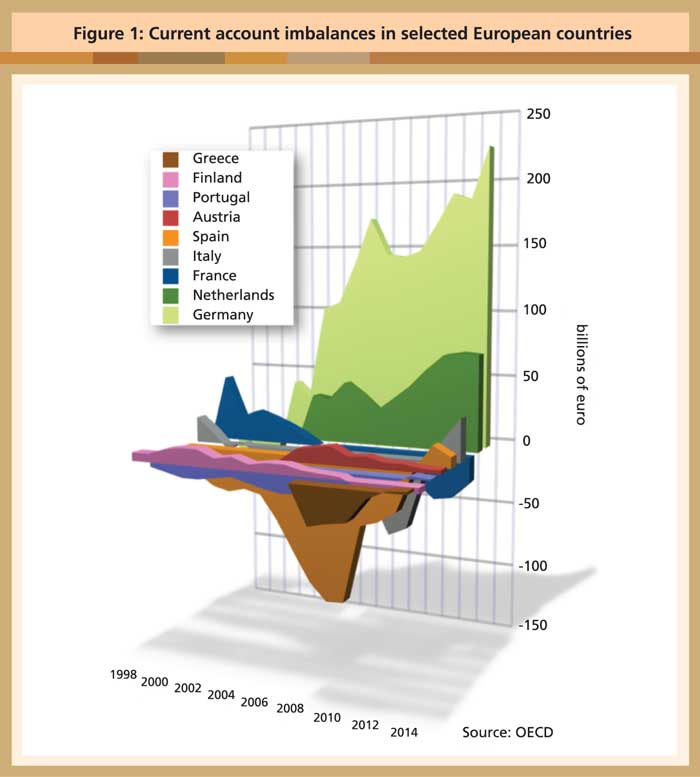
Source: https://commons.wikimedia.org/wiki/File%3ACurrent_account_imbalances_EN_(3D).svg
As at early 2018, Greece had made slow progress toward fixing its economy. However, public debt is at over 311 billion EUR, equivalent to 177% of GDP. In other words, the country is not out of the woods yet.
Oils and fats market
Olive oil dominates the domestic vegetable oil sector (Figure 2). Aside from being a staple of the traditional diet, it is an important export commodity. The Greek soybean and sunflower oil volumes are a mere fraction of the 320,000 tonnes of olive oil produced.
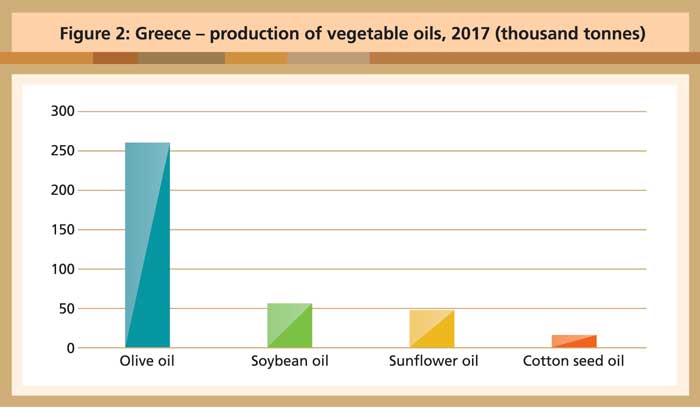
Source: Oil World
Greece imported 313,200 tonnes of oils and fats in 2017, up from 275,800 tonnes the previous year (Figure 3). In 2017, palm oil’s share of the total was a respectable 31%, although growth of sunflower oil imports was stronger.
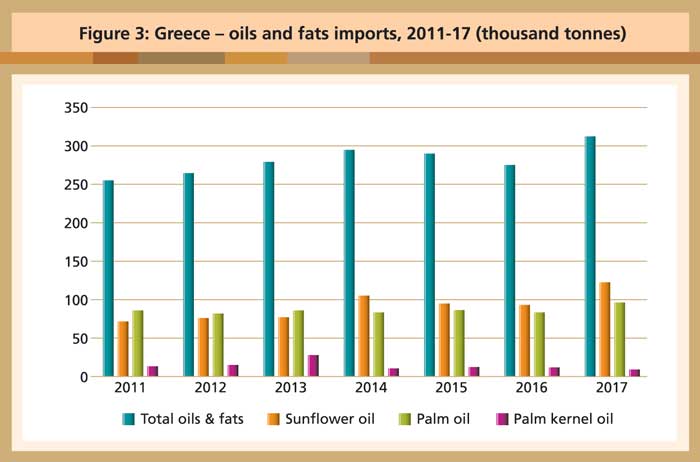
Source: Oil World
About 95% of the palm oil is of Asian origin (Figure 4). Indonesia sells more palm oil, as well as palm kernel oil, to Greece than Malaysia (Figure 5). The three most consumed vegetable oils are sunflower oil, olive oil and palm oil (Figure 6).
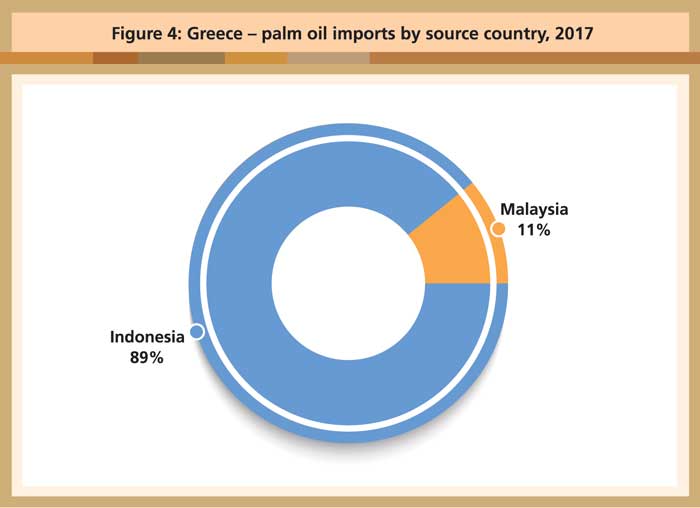
Source: Oil World
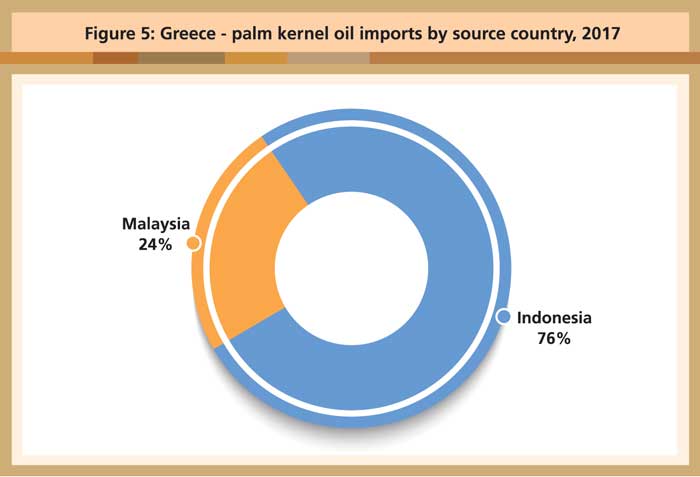
Source: Oil World
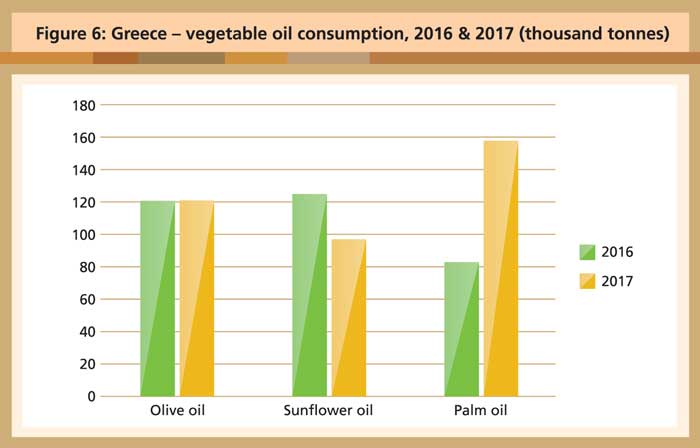
Source: Oil World
Statistics compiled by the Malaysian Palm Oil Board show a mixed picture (Figure 7). The traded palm oil volume more than doubled between 2014 and 2017. Palm kernel oil exported to Greece saw erratic changes. After growing tenfold between 2014 and 2016, the volume plunged in 2017. Oleochemicals experienced steady growth over the four-year period.
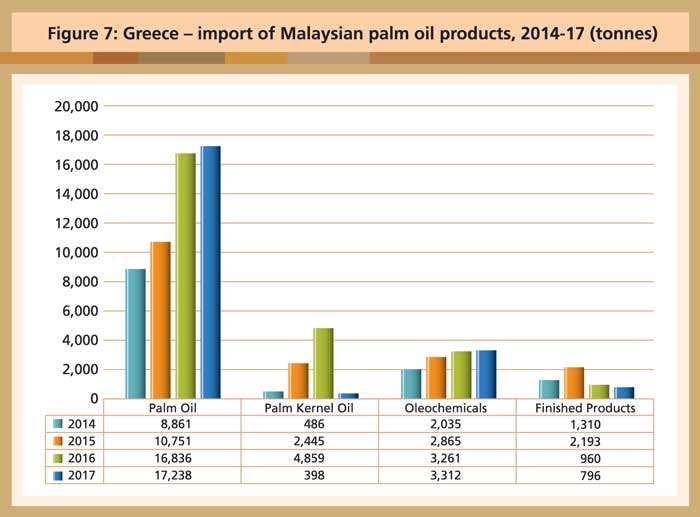
Source: MPOB
While consumers and the manufacturing sector are still reeling from the debt crisis, there are signs that economic activity is picking up, albeit slowly. Palm oil, due to its competitive price, provides an attractive option within this scenario.
MPOC Brussels